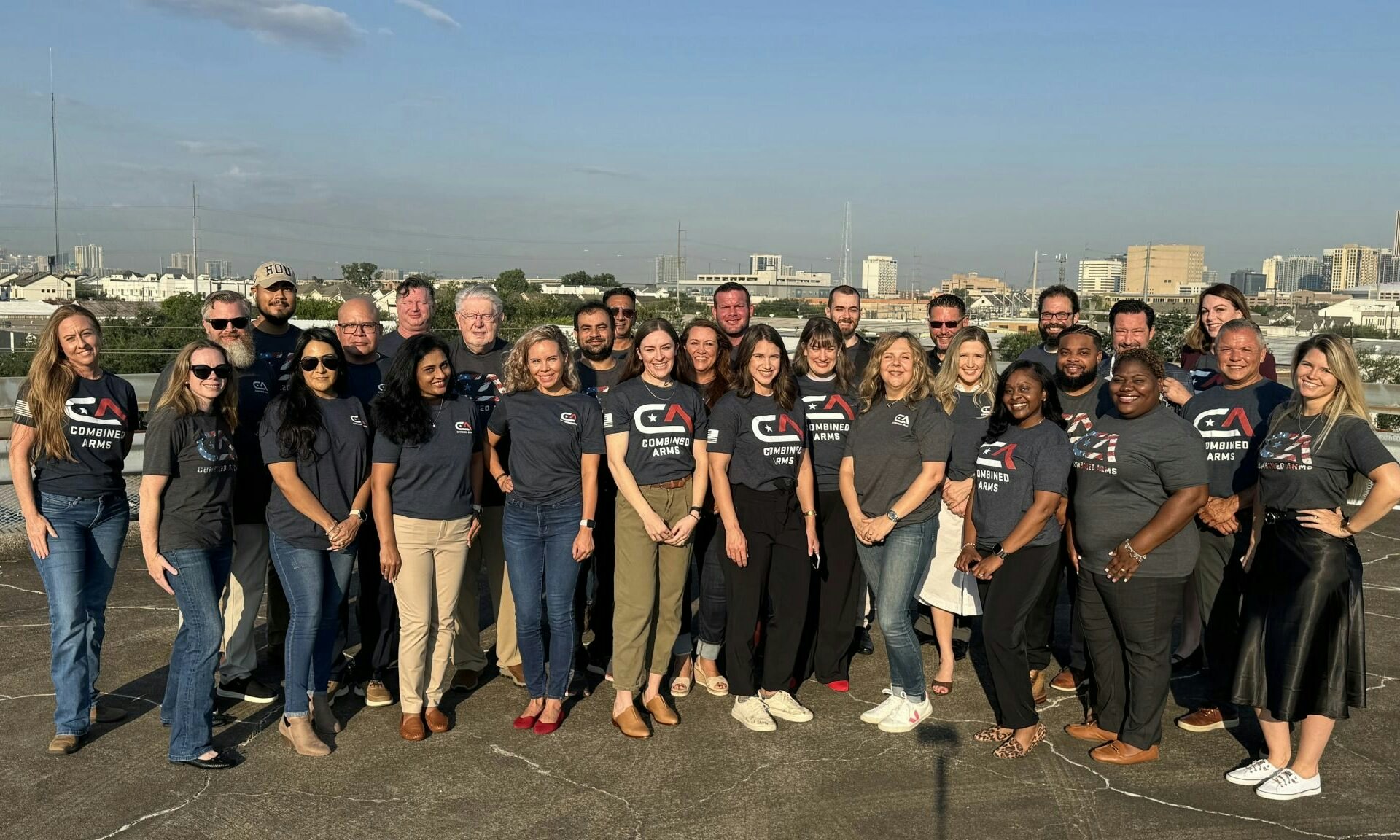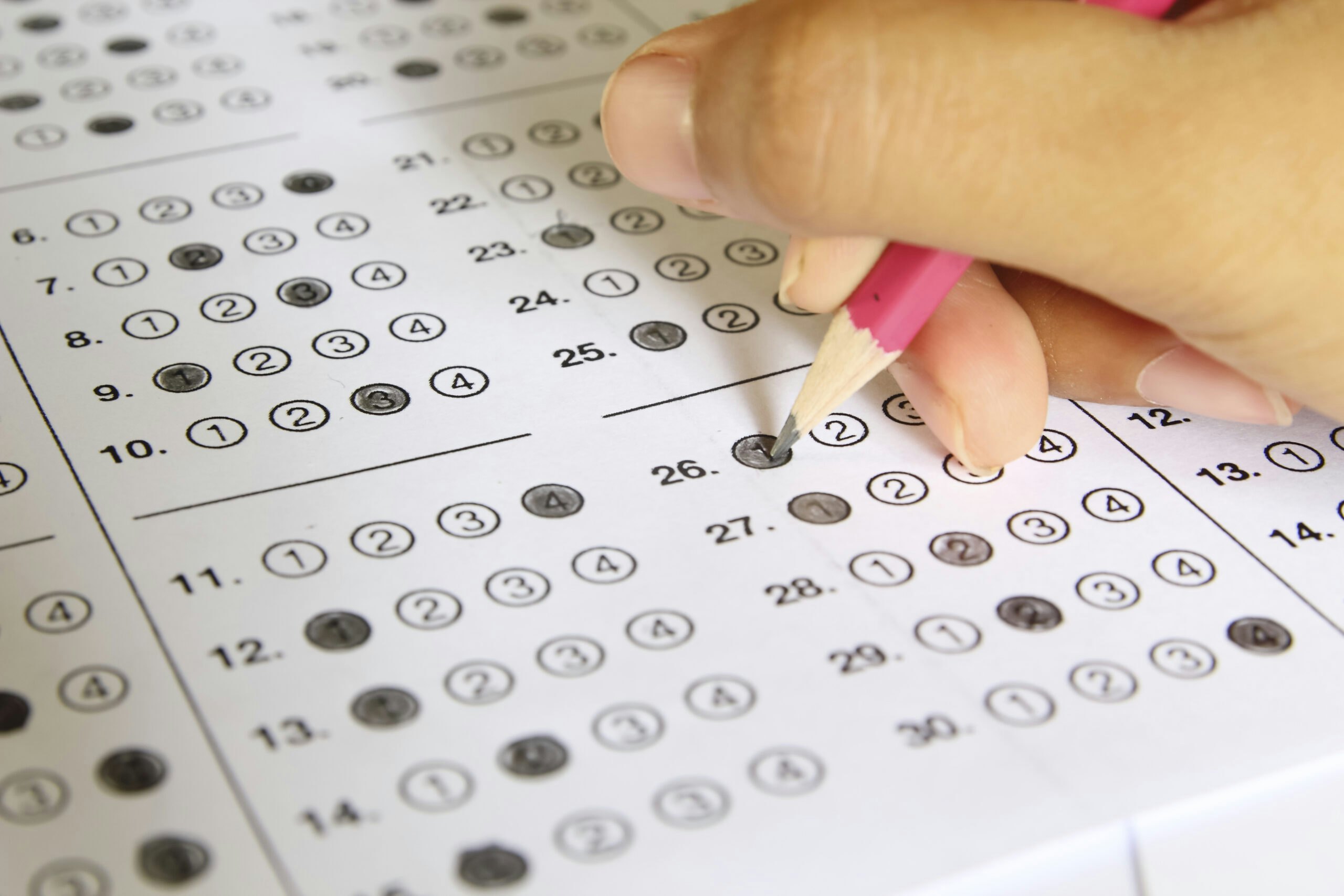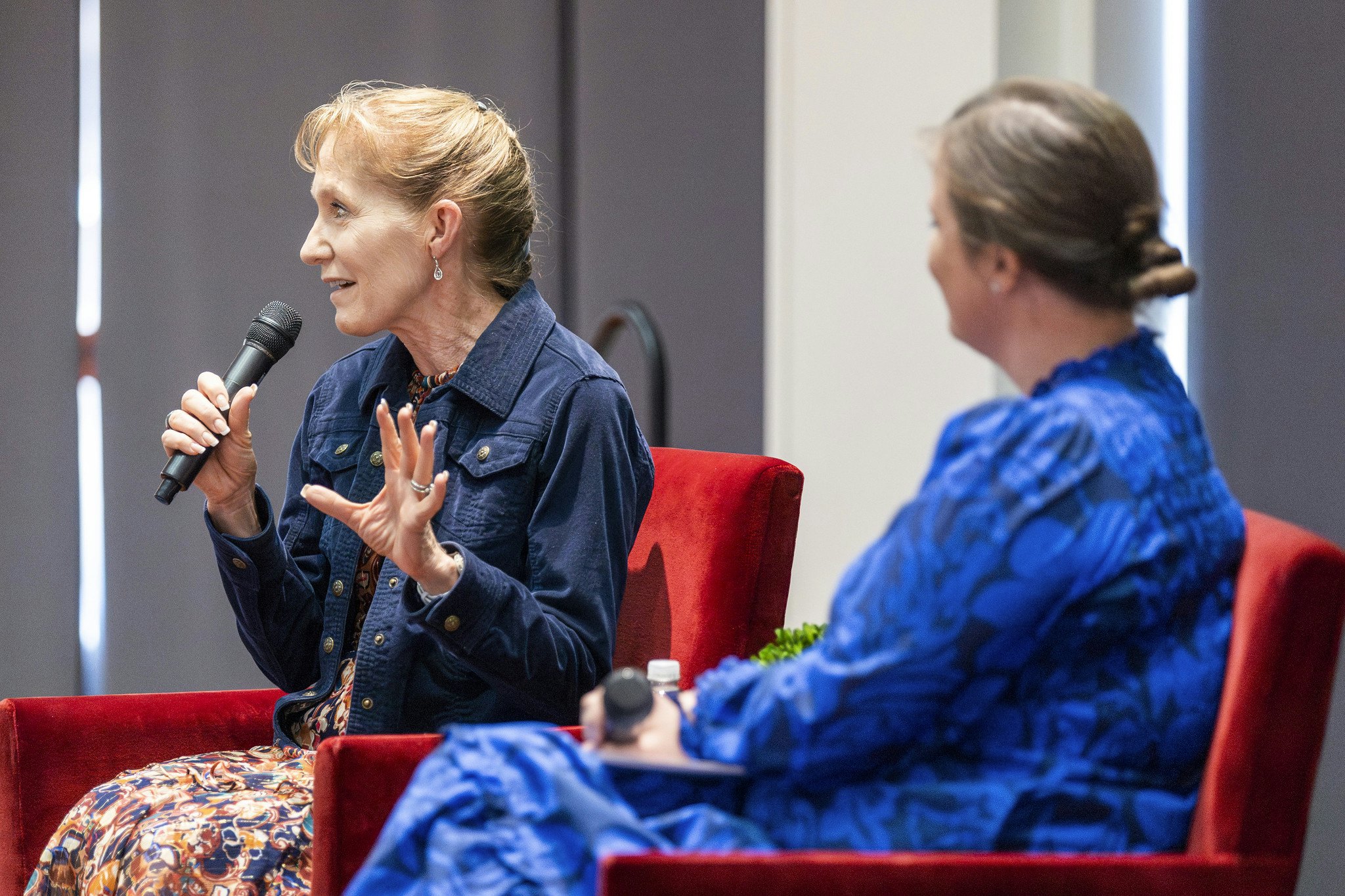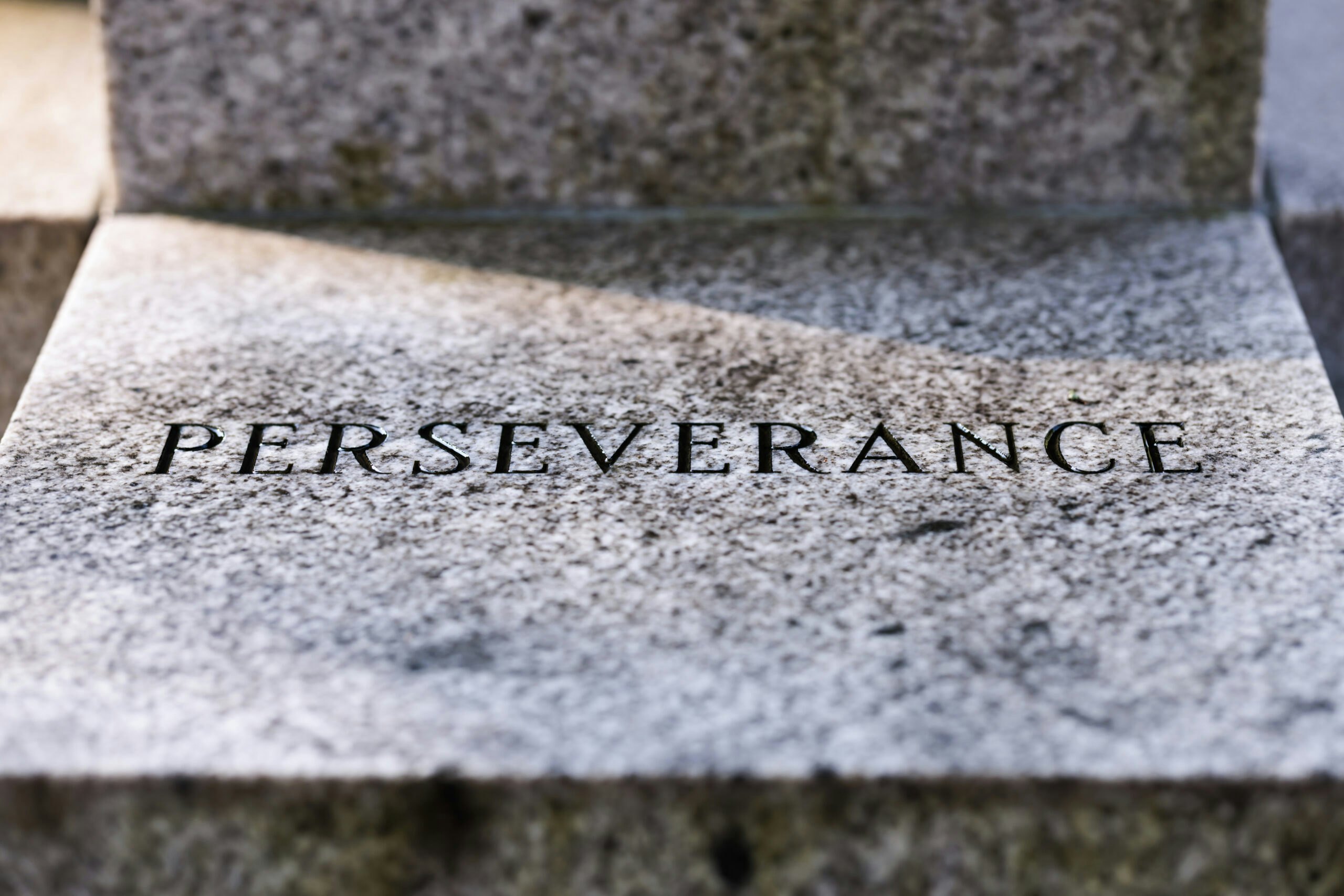The George W. Bush Institute marched forward in 2016 toward meeting its goals of developing leaders, advancing policy, and taking action to solve today’s most pressing challenges. The year also saw Kenneth Hersh becoming president and CEO of the George W. Bush Presidential Center, as his predecessor, Margaret Spellings departed to head the University of North Carolina System.
As we look back over 2016, here are the top five moments from the Bush Institute’s Domestic Excellence Impact Center, which houses the Military Service Initiative, the Economic Growth Initiative, the Education Reform Initiative, and the Presidential Leadership Scholars Program.

Bush Institute at the Invictus Games
In May, President George W. Bush joined Prince Harry at the 2016 Invictus Games, where the Bush Institute hosted a policy symposium on the Invisible Wounds of War. The Invictus Games is an international adaptive sporting event for wounded, ill, and injured service members and veterans.
Through our work in Veteran Transition, led by Bush Institute Military Service Initiative Director Miguel Howe, we found that those who return home with the invisible wounds of war – post-traumatic stress, traumatic brain injury and others – may find it challenging to tackle the barrier their injury presents as they transition to civilian life.
To learn how to effectively address these issues, the Bush Institute commissioned a survey of the general public and post-9/11 veterans about the perceptions of the invisible wounds of war, post-traumatic stress (PTS) and traumatic brain injury (TBI), as well as the challenges that arise as a result of misperceptions.
The resulting report found that more than 6 in 10 civilian respondents overestimate the percentage of post-9/11 veterans who suffer from mental health issues such as depression, anxiety, and PTSD. The report also found that 8 out of 10 post-9/11 veterans think that embarrassment or shame is an extreme or moderate barrier to veterans seeking care for medical conditions such as PTSD or TBI.
At the Bush Institute, we believe that we have a duty to understand and serve the more than 2.7 million servicemen and women who have volunteered to wear the uniform in defense of our Nation since 9-11. With proper care, invisible wounds are treatable.
It starts with a warrior asking for help – but we all have a role to play in ensuring that our post 9-11 warriors successfully transition from the military and continue to lead in their communities as they led in service to their Nation.

Enhancing the Economic Vitality of Our Neighborhood
The key to America’s prosperity is global markets for trade and investment driven by consumers making economic choices. While economic growth in the United States needs to be stronger to increase the prosperity of our citizens, research shows that trade, particularly with Canada and Mexico, benefits all of us.
In November 2016, the North America Competitiveness Initiative, spearheaded by Bush Institute Economic Growth Initiative Director Matthew Rooney, announced two key policy recommendations aimed at boosting our productivity. The first recommendation enhances the skills of our workforce, and the second is a joint mechanism to promote market strategies that will improve road and rail infrastructure across the borders of North America.
Over the past year, a working group of international experts, private sector representatives, and diplomats found that increased economic integration among the U.S., Canada, and Mexico will strengthen the U.S. economy, create opportunity across the continent, enable the U.S. to better compete, and ultimately improve the global economy.
As validation of these findings, the North America Competitiveness Initiative debuted a new digital tool that demonstrates how integrating the three economies of North America has indeed led to greater economic growth.
President Bush has said, “When Mexico is strong economically, America benefits. When Canada is strong economically, America benefits. And as America benefits, those who work hard for a living benefit as well.
As our updated Economic Scorecard indicates, now is the time to reinforce our North American bond, not dissolve it.

This fall, the Education Reform initiative released State of Our Cities: Profiles of Education Performance Around the Nation, an online tool that provides comparable education data on more than 100 cities across the country.
The interactive resource, designed to help mayors better engage in their city’s education landscape, was launched in September at a Mayors Roundtable at the Bush Center. Led by Bush Institute Executive Director Holly Kuzmich, the gathering featured mayors and superintendents from across North Texas. The discussion focused on education performance and what is needed to help prepare all students for success in college and the workforce.
President and Mrs. Bush also visited Edward J. Briscoe Elementary School in Fort Worth this fall to discuss education leadership. Along with Bush Institute Education Reform Initiative Director Anne Humphrey and Deputy Director Eva Chiang, they highlighted the principal preparation evaluation study and the Principal Talent Management Framework, developed through the Bush Institute’s Alliance to Reform Education Leadership.

Former World Leaders Have Conversation at PLS Graduation
In July, the 61 members of the 2016 Class of the Presidential Leadership Scholars program participated in a graduation ceremony in Little Rock, Arkansas. The program included a conversation with President George W. Bush, President Bill Clinton, and British Prime Minister Tony Blair, where the former world leaders urged Scholars to work together to find solutions to pressing challenges.
The Presidential Leadership Scholars program is a unique leadership development initiative that draws upon the resources of the presidential centers of Lyndon B. Johnson, George H.W. Bush, William J. Clinton, and George W. Bush.
Scholars participated in a six-month executive-style program that started in February and included a session at each participating presidential center to learn from former presidents, key administration officials, and leading academics. They studied and put into practice varying approaches to leadership, developed a network of peers, and exchanged ideas with mentors and others who can help them make an impact in their communities. The second cohort joins the alumni network of the first cohort of 60 scholars in the program.

Laura Bush Foundation Provides More than $831,000 to School Libraries
Mrs. Bush announced in May that more than $831,000 would be distributed to 130 school libraries from 30 states across the country through the 2016 library grants from The Laura Bush Foundation for America’s Libraries. The grants provide funds to some of the Nation’s neediest schools so they can extend, update, and diversify the book and print collections in their libraries with the goal of encouraging students to develop a love of reading and learning.
Mrs. Bush welcomed Dallas-area library grant recipients to the Bush Center at an Engage event celebrating the release of her and daughter Jenna Bush Hager’s new children’s book, Our Great Big Backyard. Librarians from Dallas Environmental Science Academy (Dallas ISD) and Ann Windle School for Young Children (Denton ISD) were each given a signed copy of the new book to include in their school libraries.






























